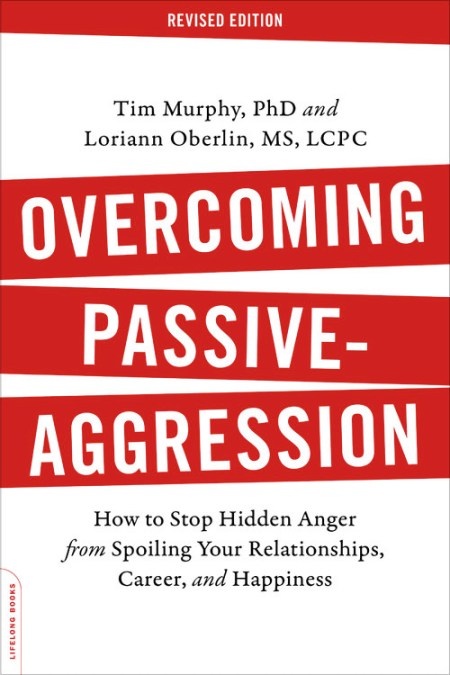Don’t Fool Yourself: Seven Signs That You’re Being Passive-Aggressive
By Natasha Burton — 2015
It’s possible you’re just distracted, but not paying attention when someone is speaking to you can also be a sign of passive-aggression.
YOU MIGHT ALSO LIKE
CLEAR ALL
BY TOPIC
BY TEACHER
BY TYPE
FILTER

TOPIC
- Neurodiversity (14)
- Intimacy (13)
- Divorce and Breakup (12)
- Work Relationships (10)
- ADD/ADHD (9)
- Toxic Relationships (9)
- Friendship (8)
- Withholding (7)
- Anger (6)
- Autism (6)
- Forgiveness (6)
- Parenting (6)
- Authenticity (5)
- Family Dynamics (5)
- Self-Development (5)
- New Relationships (4)
- Self-Acceptance (4)
- Self-Love (4)
- Setting Limits and Boundaries (4)
- Sex (4)
- Speaking Your Truth (4)
- Spiritual Growth (4)
- Cancer (3)
- Connection (3)
- Decision Making (3)
- Letting Go (3)
- LGBTQIA Relationships (3)
- Love (3)
- Mindfulness (3)
- Narcissism (3)
- Personal Development (3)
- Resilience (3)
- Self-Expression (3)
- Self-Reflection Practices (3)
- Self-Worth (3)
- Stress Management (3)
- Trust (3)
- Work Challenges (3)
- Acceptance (2)
- Accepting Love (2)
- Anger Management (2)
- Attachment Theory (2)
- Awareness (2)
- Collaboration (2)
- Compassion (2)
- Conflict Resolution (2)
- Disconnection (2)
- Dysfunctional Childhood (2)
- Emotional and Mental Health (2)
- Empathy (2)
- Finding Meaning (2)
- Guilt (2)
- Highly Sensitive People (2)
- Honoring Emotion (2)
- Intention (2)
- Leadership (2)
- Men’s Well-Being (2)
- Mindfulness Practices (2)
- Nonviolence (2)
- Offering Support to Others (2)
- Presence (2)
- Self-Discovery (2)
- Self-Esteem (2)
- Self-Realization (2)
- Self-Reckoning (2)
- Social Anxiety (2)
- Talk Therapy (2)
- Vulnerability (2)
- Women’s Well-Being (2)
- Activism/Service (1)
- Adaptability (1)
- Addiction (1)
- Asking for Help (1)
- Belonging (1)
- BIPOC Well-Being (1)
- Buddha Nature (1)
- Buddhism (1)
- Challenges with Teens (1)
- Codependency (1)
- Dharma (1)
- Domestic Abuse (1)
- Ego (1)
- Emotional Intelligence (EQ) (1)
- Emotional Labor (1)
- Empowerment (1)
- Enneagram (1)
- Failure (1)
- Fellowship and Community (1)
- Gender Challenges (1)
- Gratitude (1)
- Grief (1)
- Grit (1)
- Habit Formation (1)
- Household Labor (1)
- Identity (1)
- Indigenous Well-Being (1)
- Infidelity (1)
- Inner Life (1)
- Jungian Analysis (1)
- LGBTQIA Sexuality (1)
- Loneliness (1)
- Love Languages (1)
- Lovingkindness (1)
- Masculine/Feminine Dynamics (1)
- Midlife Crisis (1)
- Motherhood (1)
- Neuro-Linguistic Programming (1)
- Neuroscience (1)
- Perception (1)
- Positive Self-Talk (1)
- Psychology (1)
- Psychology and Spirituality (1)
- Raising Daughters (1)
- Regret (1)
- Retirement (1)
- Ritual (1)
- Self-Actualization (1)
- Self-Care (1)
- Self-Compassion (1)
- Self-Control (1)
- Self-Healing (1)
- Self-Limiting Beliefs (1)
- Self-Reliance (1)
- Shame (1)
- Spiritual Awakening (1)
- Spiritual Healing (1)
- Spiritual Life (1)
- Spirituality and Health (1)
- The Divine (1)
- Transformation (1)
- Transitions (1)
- Values (1)
- Well-Being (1)
- Work Ethic (1)
- Work-Life Balance (1)
FILTER

TEACHER
- Elizabeth Lesser (3)
- Ramani Durvasula (3)
- Terri Cole (3)
- Brendon Burchard (2)
- Elaine Aron (2)
- Gay Hendricks (2)
- Harville Hendrix (2)
- Helen LaKelly Hunt (2)
- John Bradshaw (2)
- John Gottman (2)
- Lori Gottlieb (2)
- Sharon Strand Ellison (2)
- Thich Nhat Hanh (2)
- Chan Khong (1)
- Daniel Amen (1)
- don Miguel Ruiz (1)
- Dorothy Firman (1)
- Edward Hallowell (1)
- Elizabeth Gilbert (1)
- Gary Zukav (1)
- Iyanla Vanzant (1)
- Jeff Foster (1)
- John Welwood (1)
- Karen Casey (1)
- Kathlyn Hendricks (1)
- Kim Eng (1)
- Louise Hay (1)
- Marie Forleo (1)
- Maya Angelou (1)
- Melanie Joy (1)
- Oprah Winfrey (1)
- Rick Hanson (1)
- Russell Brand (1)
- Shefali Tsabary (1)
- Stan Tatkin (1)
- Stephen Covey (1)
- Tara Brach (1)
- Terry Real (1)
- Thubten Chodron (1)
- Tony Gaskins Jr. (1)
- Zainab Salbi (1)






 Anger is inevitable when our lives consist of giving in and going along; when we assume responsibility for other people’s feelings and reactions; when we relinquish our primary responsibility to proceed with our own growth and ensure the quality of our own lives; when we behave as if having a...
Anger is inevitable when our lives consist of giving in and going along; when we assume responsibility for other people’s feelings and reactions; when we relinquish our primary responsibility to proceed with our own growth and ensure the quality of our own lives; when we behave as if having a...